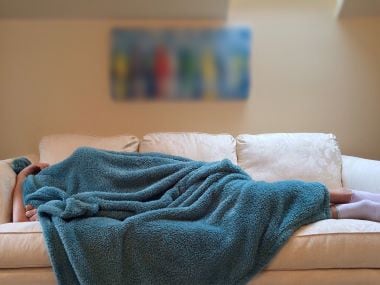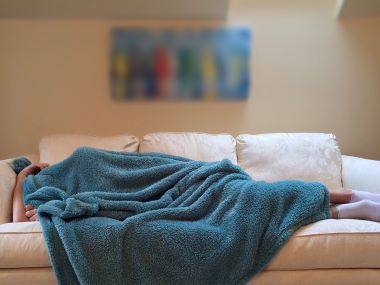Researchers at the University of Manchester, UK, have shown that there may be such a thing as beauty sleep after all. Their study, which was published in Nature Cell Biology earlier this month, explained that the body replenishes thin collagen fibres during sleep to keep us active and alert throughout the day. Collagen — one of the most abundant proteins in the body — is also responsible for keeping the skin plump and beautiful. [caption id=“attachment_7357071” align=“alignleft” width=“380”]  Representational image. Image by Wokandapix from Pixabay[/caption] If further research along these lines is successful, the researchers hope that their discovery could be instrumental to understand, and maybe even slow down, ageing.
How to be beautiful, and accomplish more
Collagen can be thought of as the glue that holds the body together. It is composed of hard, insoluble structures known as fibrils - these act as a scaffolding to provide structure to the body. By the time we are 17, all the permanent collagen in the body is already made. What’s left is the thinnest strands that unravel every day, and are remade every day - provided, you guessed it, you get your beauty sleep. Consider the size of this collagen: the study looked at both the thicker fibrils which are permanent and all of 200 nanometers (less than the breadth of a human hair) and the thinner fibrils measuring 50 nm in diameter. It is during sleep that these thinner fibrils are replenished. Now, it turns out that the genes that code our body clock — an intracellular clock which governs when we sleep, when we wake up and when we feel hungry — are also responsible for coding these thinner collagen fibrils. Ergo, these thinner fibrils play a key role in keeping us active and responsive to the rigours of the day.
What’s age(ing) got to do with it?
As time goes by, the capabilities of collagen, along with the thinner fibrils, deteriorates and signs of ageing begin to show. For instance, this explains the tendency of skin to sag as a person gets older. For this study, the researchers bred mice that lacked the genes for coding the body clock. Next, they used cutting-edge imaging technology and spectrometry to examine the extracellular matrix of the mice every four hours for two days. Surprising, they found, that in mice that lacked the genes for coding the body clock, “abnormal collagen fibrils and collagen accumulation” occurred. The thin and thick fibres amalgamated randomly and normal functioning was disrupted. (The extracellular matrix is a complex mesh that provides structure to our cells and comprises connectives tissues including the tendons, skin, bone and cartilage and skin. Half of the body’s weight is composed of this extracellular matrix, and a large chunk of this is collagen. The matrix is a dynamic, physiologically active component of tissues that facilitates biochemical processes such as cell division, growth and development.) The discovery of the thinner fibrils is momentous; it can deepen the scientific community’s understanding of how wounds heal, and constitute a part of the puzzle of ageing. It appears that the purpose of these sacrificial, replenishable fibrils is to protect the underlying, permanent parts of the body matrix. Given that all this occurs when you are asleep, the argument to get your seven-eight hours has perhaps never been stronger. For more information, read our section on Proteins for the Skin_._ Health articles in Firstpost are written by myUpchar.com, India’s first and biggest resource for verified medical information. At myUpchar, researchers and journalists work with doctors to bring you information on all things health.


)

)
)
)
)
)
)
)
)



